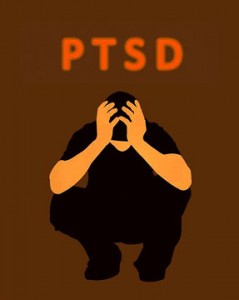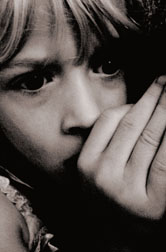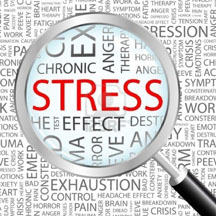 It is easy for people to get wrapped up in various treatments, therapies, and medications when it comes to controlling mental illness but did you know simply engaging in hobbies you already love can help too?
It is easy for people to get wrapped up in various treatments, therapies, and medications when it comes to controlling mental illness but did you know simply engaging in hobbies you already love can help too?
According to a 2009 study testing the potential of managing anxiety in eating disorders with knitting found that, “patients reported a subjective reduction in anxious preoccupation when knitting, more specifically- 74 percent reported it had a calming and therapeutic effect.” (1) Engaging in a hobby you already love may be just the treatment you have been looking for. Some people find that listening to music, volunteer work, keeping a daily journal of events and how they feel, laughter, playing with pets, shopping, or other forms of common hobbies helped them to relax. (2)
From singing to cooking and just about every hobby in-between, taking time to relax with an activity you enjoy can help you reap a multitude of benefits when it comes to mental health. Here’s a few that you can look forward to.
- Reduces stress. Transitioning the focus from the chaos of life to a fun, easy, and enjoyable task can instantly help reduce stress levels. Harness this benefit by opting for more relaxing hobbies. These may include knitting, painting, photographing, journaling, or even bird watching. Whichever hobby you choose, be sure it makes you feel more relaxed.
- Improves mood. Taking a break to do something you already love beats an extra hour spent at the office anyway. Investing in hobbies can feel similar to taking a break and enjoying yourself and obviously breaks and joy often produce an improved mood. A hobby should always be something you desire doing.
- Encourages socialization. Though not all, but some hobbies can help encourage socialization where you would otherwise spend time alone. And numerous studies have found a connection between relationships and happiness. Consider participating in group hobbies like team sports, clubs, or other activities that draw a crowd.
- Improves memory. Did you know studies have shown that people who regularly challenge themselves through puzzles, games, and reading can not only improve their memory now, but also help themselves avoid memory loss later in life? If you enjoy challenging your mind with puzzles you can expect to reap this benefit.
- Wards off depression. If your hobby of choice is an activity you find happiness in, it can easily help ward off feelings of depression and sadness. If you find yourself not loving a hobby, stop doing it and find something new that you do love. Hobbies are meant to be fun, and in order to benefit from them you must enjoy doing them.
While people may be consumed with treatments, therapies, and medications- sometimes all you need to lift up your spirits and improve your overall mental health is a little time spent doing a favorite hobby. Invest in yourself by taking the time to participate in things that you love. By doing so you can begin to reap the many mental health benefits that can accompany hobbies.
Mark D. Parisi, Psy.D. & Associates, P.C. provides counseling, psychological testing, and psychotropic medication management in Mount Prospect and Chicago – serving surrounding Cook, Lake, DuPage, and Will Counties. They accept most insurance and offer extremely affordable sliding scale rates. Call (847) 909-9858 for a free, no-obligation telephone consultation
###
Sources:
- Managing Anxiety in Eating Disorders with Knitting, Results quote, 2009, http://www.ncbi.nlm.nih.gov/pubmed/?term=knitting+anxiety
- Management, Information about hobbies, 2015, http://www.stress.org/military/combat-stress/management/


 When it comes to the court room we are quite familiar with law suits over physical injuries like broken bones and bruises but are you aware of the many law suites occurring over mental pain as well? Law suits are filed every day on behalf of mental pain such as anguish, emotional distress, post-traumatic stress disorder, depression, and so on. But do these victims seeking mental compensation win battles within the court room just as well as those seeking compensation for physical pain do?
When it comes to the court room we are quite familiar with law suits over physical injuries like broken bones and bruises but are you aware of the many law suites occurring over mental pain as well? Law suits are filed every day on behalf of mental pain such as anguish, emotional distress, post-traumatic stress disorder, depression, and so on. But do these victims seeking mental compensation win battles within the court room just as well as those seeking compensation for physical pain do? Team sports have long been a popular activity for people of all ages. While some people play just for fun, there are many others who play at an extremely competitive level. No matter your reason, however, there are benefits and dangers of playing sports.
Team sports have long been a popular activity for people of all ages. While some people play just for fun, there are many others who play at an extremely competitive level. No matter your reason, however, there are benefits and dangers of playing sports. The most common mental illness in men is depression. While this is often caused by post-traumatic stress disorder after serving time in the armed forces, many men suffer from depression for genetic, psychological, and stress related reasons (1). In fact, studies showed that over 6 million men in America suffer from depression. Their reaction to depression is usually substance or alcohol abuse, anger (sometimes abusive), and even suicide (2).
The most common mental illness in men is depression. While this is often caused by post-traumatic stress disorder after serving time in the armed forces, many men suffer from depression for genetic, psychological, and stress related reasons (1). In fact, studies showed that over 6 million men in America suffer from depression. Their reaction to depression is usually substance or alcohol abuse, anger (sometimes abusive), and even suicide (2). PTSD, or post-traumatic stress disorder, is an anxiety problem that develops in some people after extremely traumatic events, such as combat, crime, an accident or natural disaster, according to the American Psychological Association. (1) PTSD is often acted out through nightmares, hypervigilance, flashbacks, anger, or depression and can often complicate close relationships like families.
PTSD, or post-traumatic stress disorder, is an anxiety problem that develops in some people after extremely traumatic events, such as combat, crime, an accident or natural disaster, according to the American Psychological Association. (1) PTSD is often acted out through nightmares, hypervigilance, flashbacks, anger, or depression and can often complicate close relationships like families. Families all around the world embrace animals such as cats, dogs, fish, and gerbils- just to name a few. They welcome these small or large critters into their home because they make them happy and offer companionship. They teach children responsibility and friendship. But did you know pets can also do the same for inmates?
Families all around the world embrace animals such as cats, dogs, fish, and gerbils- just to name a few. They welcome these small or large critters into their home because they make them happy and offer companionship. They teach children responsibility and friendship. But did you know pets can also do the same for inmates? It’s unfortunate today, how tragedy has become such a routine part of our lives. Whether on a small scale, such as the death of a loved one or on a national scale with the influx of terrorism, tragedy is hitting home far more frequently than ever before in our history. We would be gullible to believe these tragedies aren’t affecting our children too.
It’s unfortunate today, how tragedy has become such a routine part of our lives. Whether on a small scale, such as the death of a loved one or on a national scale with the influx of terrorism, tragedy is hitting home far more frequently than ever before in our history. We would be gullible to believe these tragedies aren’t affecting our children too. While many of us are fully aware of how weather has the ability to affect our physical health, the majority of people today are completely ignorant of the affects weather can have on our mental health. Rain or shine, hot or cold, tornado or hurricane- weather can have a dominating effect on the way we feel and translate the world around us.
While many of us are fully aware of how weather has the ability to affect our physical health, the majority of people today are completely ignorant of the affects weather can have on our mental health. Rain or shine, hot or cold, tornado or hurricane- weather can have a dominating effect on the way we feel and translate the world around us. According to the key findings of the American Psychological Association (APA), there are 2 terrible truths about stress today (1). To help you better understand these truths and in return your own personal stress, here’s more.
According to the key findings of the American Psychological Association (APA), there are 2 terrible truths about stress today (1). To help you better understand these truths and in return your own personal stress, here’s more. It is common for people to have emotional highs and lows caused by everyday stress. However, there are some people who suffer from a severe mental illness known as bipolar disorder in which sudden shifts in mood and energy may be seen on a regular basis (1). These mood swings can negatively affect a person’s home life as well as his career if they are not controlled as well as possible. However, as with most mental illnesses, having a consistent routine can ease the symptoms and make the disorder easier to handle. There are 3 areas of consistency that should be met.
It is common for people to have emotional highs and lows caused by everyday stress. However, there are some people who suffer from a severe mental illness known as bipolar disorder in which sudden shifts in mood and energy may be seen on a regular basis (1). These mood swings can negatively affect a person’s home life as well as his career if they are not controlled as well as possible. However, as with most mental illnesses, having a consistent routine can ease the symptoms and make the disorder easier to handle. There are 3 areas of consistency that should be met.